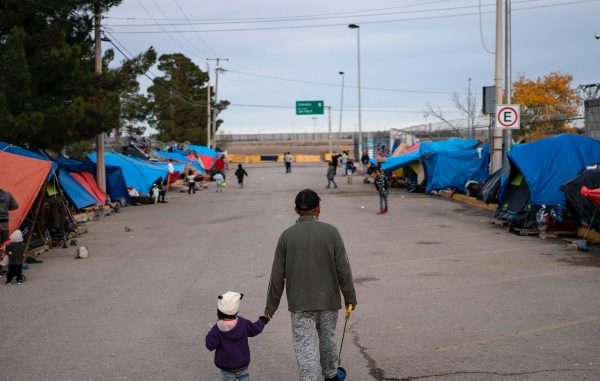
The Trump administration’s attempt to replace the Flores Settlement Agreement, which affords certain protections for minors in immigration custody, with a new set of rules was blocked by a federal appeals court.
CBS News reports that the San Francisco-based 9th Circuit Court of Appeals said the Trump administration could not toss the agreement that the government agreed to comply with in 1997.
Under the agreement, border officials must hold migrant minors in safe and sanitary facilities before moving them to programs licensed by state agencies to house children while the government seeks to release them to family members or other sponsors in the U.S. In 2015, a federal judge said those standards applied to unaccompanied children and those detained with their parents or legal guardians.
The Trump administration challenged the agreement and claimed it was a legal “loophole” that allows unauthorized migration of Central American families and children. Trump officials moved to end the agreement in August 2019 with a set of rules to replace it. The administration claimed that detaining families for the duration of their asylum proceedings would “eliminate the major pull factor fueling” border crossings.
Their attempt was blocked in September 2019 by U.S. District Judge Dolly Gee, who found that some of the regulations did not comply with the Flores agreement. On Tuesday, a three-member panel of 9th Circuit judges sided with a majority of Gee’s conclusions.
The changes permitted the U.S. government to detain migrant parents and children indefinitely because the three family detention facilities currently operated by U.S. Immigration and Customs Enforcement (ICE) lack state licenses, which legally prohibits them from being used for long-term custody. Through internal licensing, however, ICE could use them for indefinite detention, without state oversight.
“Together, the DHS regulations regarding the release of accompanied minors and the revised definition of ‘licensed facility’ dramatically increase the likelihood that accompanied minors will remain in government detention indefinitely, instead of being released while their immigration proceedings are pending or housed in nonsecure, licensed facilities,” U.S. Circuit Judge Marsha Berzon wrote.
Neha Desai, a lawyer representing migrant children in the lawsuit, praised the 9th Circuit’s decision.
“Placement in state licensed facilities, and expeditious release, are core principles of the Flores Settlement Agreement; principles that are eviscerated by the government’s regulations, which allow for ‘self-licensing’ and indefinite detention,” Desai, the director of the immigration division at the National Center for Youth Law, told CBS News. “The Ninth Circuit’s refusal to allow these regulations to take effect represents a profound victory for accompanied children.”
Some of the Department of Homeland Security regulations will be allowed to go into effect. One that the court ruled was permissible involves the process border officials must follow to comply with the legal requirement of quickly transferring unaccompanied minors to the Office of Refugee Resettlement and its network of shelters.
The Trump administration also put forward a rule by the Department of Health and Human Services, which oversees the refugee office charged with caring for unaccompanied migrant minors.
The outlet reports that the court ruled that most of the regulations under the companion rule could take effect, except for two provisions. One expanded the grounds for sending unaccompanied children to juvenile detention centers and the other required youth at these facilities to affirmatively file a request to have a bond hearing.
Via Newsmax
